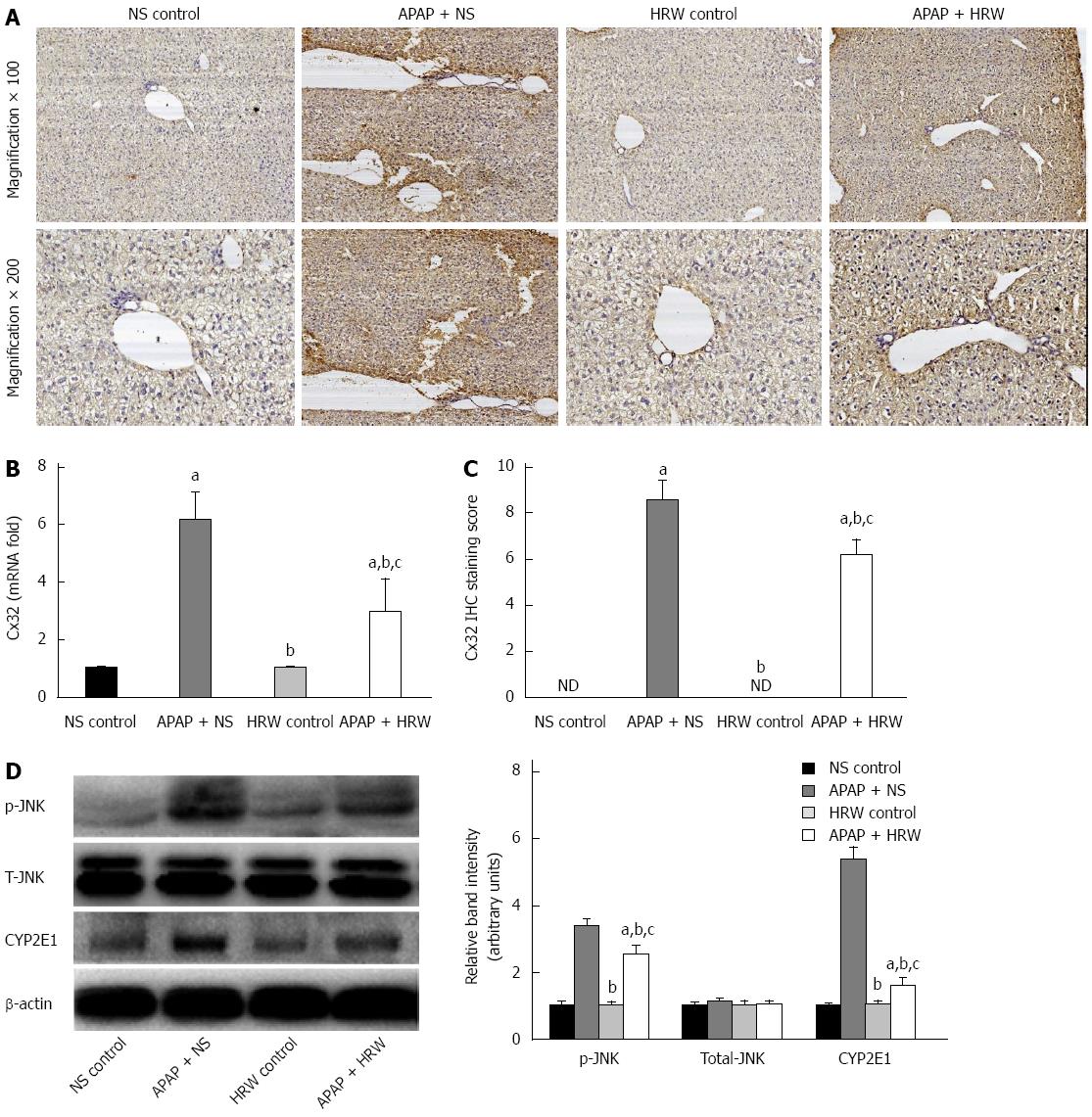Copyright
©The Author(s) 2015.
World J Gastroenterol. Apr 14, 2015; 21(14): 4195-4209
Published online Apr 14, 2015. doi: 10.3748/wjg.v21.i14.4195
Published online Apr 14, 2015. doi: 10.3748/wjg.v21.i14.4195
Figure 6 Hydrogen-rich water inhibited connexin 32 expression in the liver tissue.
A: Representative photographs of connexin 32 (Cx32) expression in the liver. The acetaminophen (APAP)-challenged mice had more Cx32 immunopositive staining, as indicated by the brown color, while treatment with hydrogen-rich water (HRW) can significantly reduce Cx32 immunostaining; B: The Cx32 IHC staining score indicated that hydrogen therapy could significantly lower the staining score and reduce its activation and expression; C: The relative Cx32 mRNA levels in the three groups; D: Western blot analysis for the protein content of JNK and cytochrome P4502E (CYP2E1) proteins in response to APAP and HRW treatment in the liver. β-actin was used as an internal control (n = 6, mean ± SD, aP < 0.05 vs NS control group; bP < 0.05 vs APAP + NS group, and cP < 0.05 vs HRW control group). NS: Normal saline.
- Citation: Zhang JY, Song SD, Pang Q, Zhang RY, Wan Y, Yuan DW, Wu QF, Liu C. Hydrogen-rich water protects against acetaminophen-induced hepatotoxicity in mice. World J Gastroenterol 2015; 21(14): 4195-4209
- URL: https://www.wjgnet.com/1007-9327/full/v21/i14/4195.htm
- DOI: https://dx.doi.org/10.3748/wjg.v21.i14.4195









